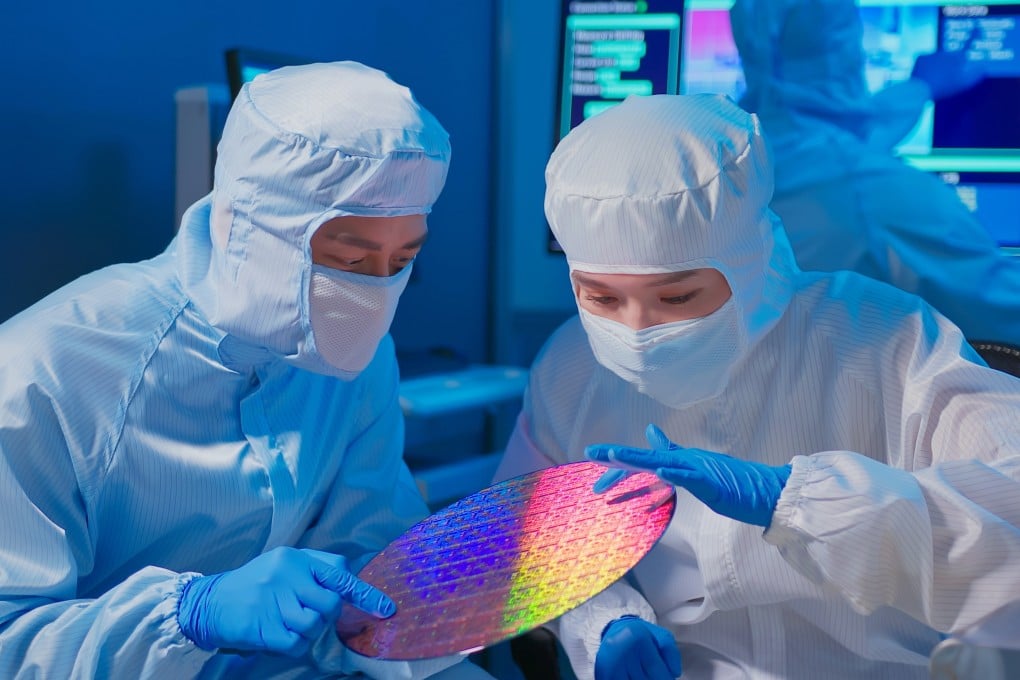EU seeks to strengthen Taiwan’s ‘silicon shield’ as military tensions with China threaten chip supply
- European Parliament overwhelmingly passes resolution calling for a supply-chain agreement with Taiwan, weeks after China formed a ‘virtual blockade’ of the island
- Taiwan dominates the global market for critical semiconductors, and businesses within the European Union depend heavily on the island’s advanced computer chips

European lawmakers are calling for a strategy to protect their supply chains with Taiwan – the world’s biggest producer of critically important semiconductors, and a potential military flashpoint.
The European Parliament passed a resolution 424-14 on Thursday, asking that its executive arm, the European Commission, “swiftly start working on a resilient supply-chain agreement with Taiwan”, according to parliament’s official website.
The resolution says such an agreement should address “respective vulnerabilities in a mutually beneficial manner” while also “preserving Taiwan’s security by strengthening its ‘silicon shield’”.
The lawmakers who help chart a path for the 27-nation, 448-million-population European Union pointed in their resolution to mainland China’s military pressure on Taiwan since August, including a “virtual blockade” of the island, and they noted that Taiwan “dominates” the world’s semiconductor manufacturing market.
“They want to secure their demand for chips, because I don’t think EU manufacturing can otherwise survive without them,” said Chen Yi-fan, an assistant professor of diplomacy and international relations at Tamkang University in Taiwan.
